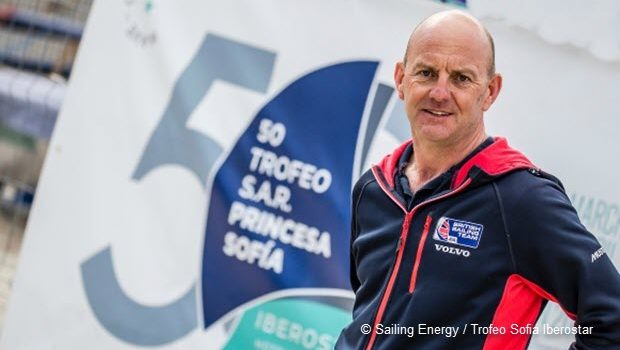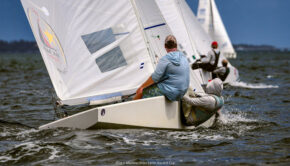Ian Walker: Turning the oil tanker
Published on April 8th, 2019
Britain’s Ian Walker has a pretty unique view of the world of sailing. A double Olympic silver medalist – in the 470 and Star – winning skipper of the Volvo Ocean Race, coach to Shirley Robertson and the Olympic gold medal winning Yngling crew in 2004 in Athens, multiple dinghy class champion, family cruiser and dinghy racer.
Walker is now the Director of Racing at Britain’s governing body, the Royal Yachting Association, and in an interview with Tip & Shaft in Issue #23 he discusses Olympic sailing and The Ocean Race. In this excerpt he discusses the health of the sport…
What is your own biggest concern right now in your role?
The thing that concerns me most right now is the general health of the sport and the feeling that I would love to do something in terms of turning things around at club sailing and racing. But that is a massive challenge because of the way society has changed. It is like turning an oil tanker round.
Nothing is going to happen in a year, maybe in five years. And it is not about me, it is about all the people involved in the process. I think we can change the rhetoric quite quickly though. We are making massive changes to our youth program, with much less emphasis on results and much more on learning, participation and skills development.
There is just no point in training up lots of really good young sailors if they then all give up the sport. That is a waste of investment. We are considering a huge change in how we deliver junior performance sailing. But that will take years.
Britain is very different to Spain, France and Italy?
There are such differences between other nations. In the UK we are not club based like most. In Italy parents drop their kids down at the club, the club has a professional coach or coaches who takes them to events. In Britain we are parents and class association driven.
In Spain, France and Italy, for example, they are club driven. It is so different. And if you go to Singapore, they do it at school, the Oppie kids sail five times a week and are coached to within an inch of their lives, their funding is linked to fitness testing.
We want to get further removed from that. We don’t believe that success at a junior age has any correlation to success at an older age.
What do the good clubs do right?
I think the good clubs just work really hard at everything, whether it is communications with their members, they have different forms of racing and make it very social, they are extremely proactive at every level and not all of it works. I was at a junior camp where all ages of kids get involved, it is family orientated, so there are all sorts of different routes.
I was amazed at my club where they don’t do points races on a Sunday now because it takes the whole day and families want weekends. How many clubs do the same thing they have done for years because it is what they do? Every club is different and there is no one solution.
We are looking to try and support clubs more, to keep people in their clubs longer and reduce traveling.
The trend has been to make youth sailing so performance focused, but that is driven by parents. There are lot of parallels with school where there is more and more tutoring in subjects. We are not really educating kids in schools; we are training them to pass exams. That is essentially what we are doing in junior sailing.
We are not creating better sailors, which you do by sailing lots of different boats and crewing, helming, sailing with adults. What we do is teach them to be good at starting and to be fast upwind. That is how you do well in a windward-leeward race. We cram them for windward-leeward races. So, there are huge challenges. It is not about me. The most important thing I do is help, challenge, and support the people who work for us. They are the ones on the ground.
For complete interview in Issue #23… click here.









 We’ll keep your information safe.
We’ll keep your information safe.